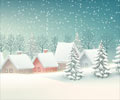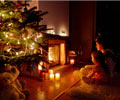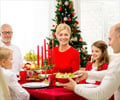To minimize the risk of home fires this Christmas, follow our tips and enjoy the holidays without worry.

‘Home tree fires aren’t common, but when they occur someone dies in one of every 45 Christmas tree fires. To prevent tree fires- purchase a flame-retardant metallic or artificial tree.’





“Practicing winter holiday safety is extremely important,” said Robert Emmons, campus safety manager for the University of Alabama at Birmingham’s Department of Environmental Health and Safety. “It’s key to remember some basic safety tips to keep you and your family safe this season.”Protect yourself, your home and your family from the dangers of fires during the holidays:
Give your heat sources some space.
Heat sources too close to Christmas trees cause one in four winter fires, according to the USFA. The Red Cross recommends keeping keep your trees, candles and other decorations, such as rugs and wrapping paper, at least three feet from fireplaces, radiators, space heaters, candles and heat vents.
Mind your Christmas tree.
Advertisement
Cook with caution.
Advertisement
“If you’re sleepy or have consumed alcohol, don’t use the stove or stovetop,” said Emmons. “Plus, always stay in the kitchen when you’re cooking food; if you leave the kitchen at all, be sure to turn off the stove and move anything that can catch fire away from it.”
Read all the instructions. There are limits to the number of holiday light strands you can string together, says the USFA, and each brand or model can be different. Be sure to read the manufacturer’s instructions before decorating. Also, ensure your light strings are in good condition: If the cords are frayed or splitting, it’s time to find replacements.
Keep an eye on your candles.
In old-fashioned Christmases, real trees were lit using wax candles. Now, holiday décor is much safer, but it’s still important to keep candles at least 12 inches from anything flammable and three feet from your live Christmas tree, according to the USFA. It’s possible to purchase electric menorahs or kinaras, but if you prefer to use traditional flammable candles, the Red Cross recommends setting them on a nonflammable surface, such as a tray covered in aluminum foil.
Use space heaters responsibly.
Follow the NFPA’s heater checklist when purchasing and setting up space heaters in your home. Nearly half of all space heater fires involve electric space heaters, so it’s important to be cautious. Be sure the heater features automatic shut-off tip-over protection, and always plug it directly into a wall outlet, rather than an extension cord. Always unplug them when you leave a room or go to sleep.
“The NFPA says space heaters are involved in nearly 80 percent of fatal home fires,” said Emmons, and he recommended inspecting for loose connections and cracked or damaged plugs and cords.
UAB has a strict space heater policy to avoid fire hazards: Heating elements must be limited to 212 degrees Fahrenheit, and the heater must be electric and automatically switch off if it tips over. Plus, heaters should be kept more than 36 inches away from combustible materials such as paper, curtains, furniture, clothes, and trash.
Check your smoke alarm.
Aside from decorating safely and smartly, smoke alarms are the first line of defense against home fires. The Red Cross recommends installing smoke alarms near kitchens, on each level of your home, near sleeping areas and both inside and outside bedrooms. Replace batteries once per year, and test the alarm each month to make sure always works properly.
Source-Newswise














